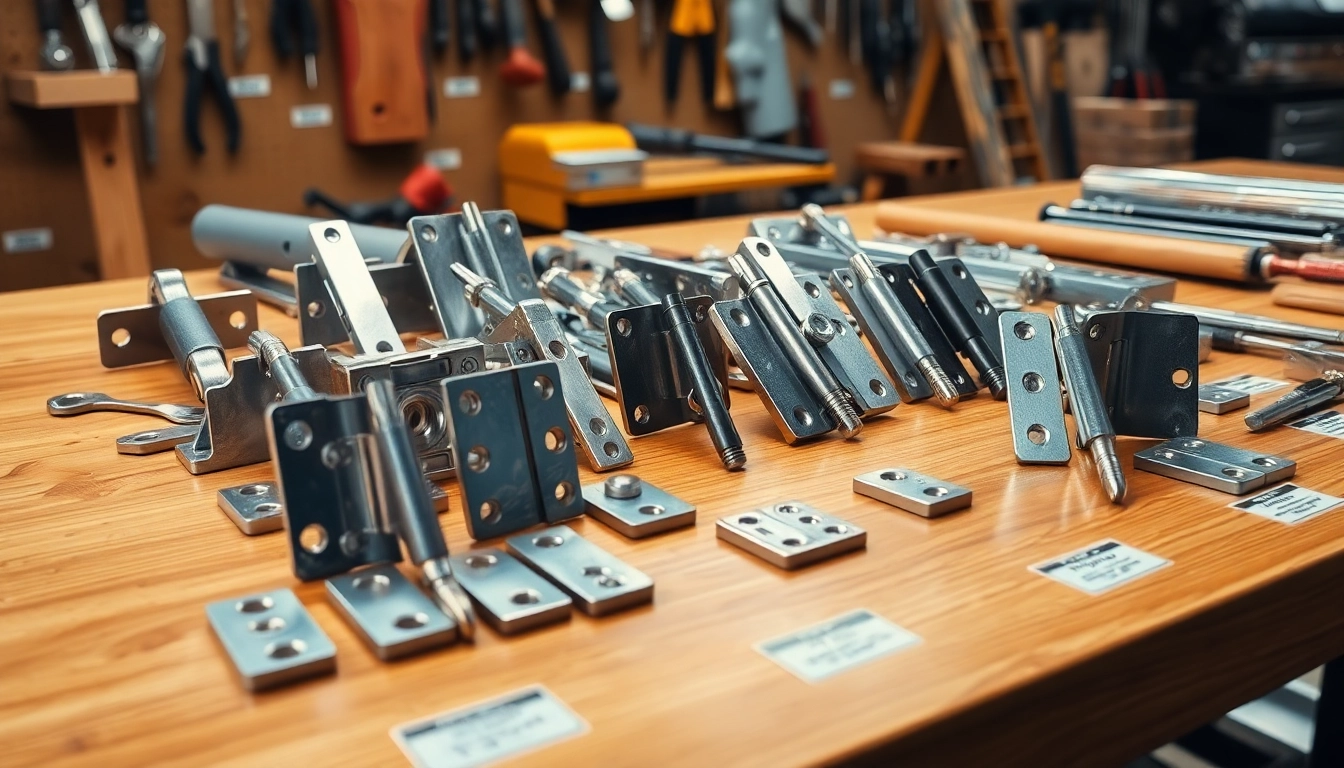Understanding Different Types of Hinges
When selecting a Hinge Supplier, it’s essential to understand the diverse types of hinges available in the market. Each type is designed for specific use cases, environments, and functional requirements. This article explores various hinge categories, focusing on residential, commercial, and specialty hinges.
Residential Hinges: Key Features and Use Cases
Residential hinges are primarily used in household applications. These hinges must balance aesthetic appeal with functional integrity. Common types include:
- Butt Hinges: The most common type for interior doors, butt hinges offer strength and durability.
- Continuous Hinges: Also known as piano hinges, these run the entire length of the door, providing extra support and stability.
- Spring Hinges: Ideal for self-closing mechanisms, these are often found on screen and storm doors.
When selecting residential hinges, consider factors like material (steel, brass, or plastic), finish (polished, satin, or painted), and load-bearing capacity to ensure they complement the door’s design and usage.
Commercial Hinges: Durability and Specifications
Commercial hinges must withstand frequent use and often heavy loads. They are crafted with greater durability and specific functionalities in mind. Notable types include:
- Ball Bearing Hinges: These are built to reduce friction, making them especially suitable for high-traffic areas.
- Security Hinges: Designed to resist tampering, these are ideal for external doors and safe applications.
- Removable Pin Hinges: Useful for security reasons; the pins can be easily removed, allowing for door detachment.
When sourcing commercial hinges, consider certifications such as ANSI/BHMA for durability standards, as well as the potential need for custom sizes and finishes to match the building’s architecture.
Specialty Hinges: Innovations and Applications
Specialty hinges cater to unique applications that standard hinges cannot fulfill. Innovations in hinge design have led to:
- Geared Hinges: These allow doors to fold without obstruction, ideal for specialized entrances.
- Counterbalance Hinges: Designed for doors that open vertically, often seen in folding and rolling doors.
- Dampened Hinges: These provide controlled motion for applications where safety and smooth operation are critical, such as in cabinetry.
Understanding the specific requirements of the door function and environment will guide the selection of specialty hinges, driving performance in unique applications.
What to Look for in a Hinge Supplier
Choosing the right hinge supplier is crucial for ensuring quality and reliability. Here are critical factors to consider:
Quality Assurance and Certifications
A reputable hinge supplier should demonstrate a commitment to quality through appropriate certifications such as ISO 9001, which indicates compliance with international quality management standards. Ask suppliers about their testing processes and durability ratings for their products.
Custom Design Capabilities
If your project requires specific requirements that off-the-shelf products cannot meet, look for suppliers that offer custom designs. This could involve different dimensions, materials, or finishes that enhance functionality or aesthetic appeal.
Customer Support and Service
Evaluate the supplier’s customer service track record. Responsive support can be vital when navigating complex orders, or addressing post-purchase issues. Reviews and testimonials can provide insight into their service quality.
Benefits of Sourcing from a Reputable Hinge Supplier
Partnering with a reliable hinge supplier can yield significant benefits, including:
Cost-effectiveness in Bulk Orders
Many suppliers offer discounts for bulk purchases. This can lower overall costs and make sourcing hinges for large projects much more economical. Compare pricing within the context of quality to ensure the best value.
Access to Specialized Products
Reputable suppliers often have a wider selection of specialized and hard-to-find products. This access can streamline your sourcing process, ensuring you find exactly what you need without delays.
Long-term Partnerships and Reliability
Establishing a relationship with a trusted supplier can enhance reliability and consistency throughout your projects. Long-term partnerships often lead to better service, priority in fulfillment, and insights into product innovations.
Challenges Faced in the Hinge Supply Industry
The hinge supply industry faces several challenges that can impact the final product delivered to consumers:
Supply Chain Issues and Management
Global events have shown how susceptible supply chains can be to disruptions. It’s crucial for suppliers to have contingency plans and diversified sources to mitigate these risks and maintain supply continuity.
Meeting Diverse Customer Needs
With a wide range of applications and customer specifications, hinge suppliers must have flexible production capabilities and an understanding of market demand to adapt to specific orders.
Environmental Impact and Sustainability Practices
As industries move toward sustainability, hinge suppliers must consider the environmental impact of their manufacturing processes, including the sources of materials and waste management. Suppliers that adopt eco-friendly practices are more likely to align with modern construction standards and consumer preferences.
Best Practices for Working with Your Hinge Supplier
To maximize your partnership with a hinge supplier, adopt these best practices:
Effective Communication Strategies
Clear and concise communication is key. Ensure that you articulate your needs, timelines, and specifications to avoid misunderstandings.
Setting Clear Expectations and Timelines
Be explicit about delivery times and quality benchmarks. This establishes accountability and allows your supplier to meet your requirements efficiently.
Evaluating Performance and Feedback Mechanisms
Regularly review the supplier’s performance against your expectations, providing feedback to help them improve. This collaborative approach can enhance your working relationship and lead to better outcomes in future orders.
